|
Heavy Metal, it's been with us since the 1970's and since then it has rapidly grown in size, strength and widespread appreciation. Yet in pockets across the world, there are certain nations and regions that still either want to oppress the genre or persecute it's followers (or both), simply because it is relatively new (in some countries) and therefore might as well be seen as an invasion on their own cultural and religious traditions. However on the other hand there are some nations who even though befit the aforementioned traits are in fact starting to realize the potential this music export has, what benefits it brings to their country and how they can support their citizens success'. Such countries who are or who have made this transition include (but not limited to): Tunisia, Indonesia, Israel and India. But as said there are some countries who do not seem to want to or are willing to acknowledge the music genre in terms of it being a potentially beneficial export - that is where bands or artists can represent their country on the international stage and perhaps bring jubilant success in terms of recognition, whether it be for socio-political reasons e.g. Israeli and Palestinian metal bands Orphaned Land and Khalas retrospectively (they toured together) or as a means of defying war in their home country e.g. Acrassicauda (who fled from Iraq to the USA). We'd like to stress that we are not attacking the religion itself, but rather trying to highlight the socio-cultural problems metalheads face in these parts of the world. With more nations beginning to accept metal music, where does this leave some of the world's ravaged countries and their respective metal scenes? We take a look at three countries who not only have an actual historical and presently active metal scene but are being scrutinized for their clamping down on this form of musical art. Iran, Egypt and Algeria. They all have comparisons and differences, the latter applying to geographical positioning and cultural heritage, however specific comparisons that straddle these three nations include their ancient history, conservative norms, ancient linguistics but even more crucially, they're Islamic nations. Now without touching the very delicate nature of the Islamic faith, there is an apparent stigma demonstrated by the conservative Muslims, whereas their Indonesian counterparts are embracing the genre with newfound appreciation, what with their new President being a supporter of metal music himself, quite the irony when you think that they are the largest Muslim population in the world. Iran despite its strong yet ironically unstable metal scene, over the years has vehemently shown aggression towards the music genre due to it conflicting with it's cultural traditions, leading to it's probable classification as harem under Sharia law (in Islam). In fact the documentary "Global Metal" has shed light on the overall perception of Metal music in Iran, from the religious police perspective through the Iranian metalheads; one personally knowing Tom Araya (Slayer) and of whom had sent a photo to Tom of him standing adjacent to a wall with 'Slayer' spray painted on it. Tom's personal thought sums up the whole situation of metal music in Iran.... preach it and play it with extreme caution. Arsames is perhaps Iran's most successful metal band, yet the nation still seems to be finding metal music a threat to their cultural norms as said. Abhorrently going to great lengths to make this genre hated, by recently arresting some musicians for 'Satanic' reasons (what can be more Satanic than Satanism? Well it is it's own religion for starters, and yet whilst the 'culna' or 'devil's horns' may well be correlated to Satanism, it in fact has a rather intriguing and startling background. The culna is seen to be a sign to warn off the 'evil eye', which is seen to cause injury or misfortune through delivering a malevolent look, so think of it as a shamanic way of warding off negative energy. Quite the contrast to what is seen in the Muslim world, oh and the interesting thing is that the 'evil eye' is a superstition in Iran (as explained here). So if should the Iranian Government push ahead and execute the metal band Confess (read here), then they might as well have betrayed the historical and mythological beliefs held within Iranian folklore. What with the knowledge that at least 69 Iranian bands / projects are active or have been active; some of which have fled to other countries including Malaysia and various European countries (http://www.metal-archives.com/lists/IR), this small and slightly isolated underground scene operates in the consistent threat of being targeted as supposed preachers of Satanism and thus betraying the cultural-historical tradition of the Islamic faith in Iran. Yet in the Quran, specifically chapter: Al-Baqra (verse 193), it states:- "fight them until there is no persecution, and religion is only for Allah. But if they desist, then there should be no hostility except against the oppressors". (https://www.comp.leeds.ac.uk/nora/html/2-193.html) Then surely, by addressing this belief that one should fight another entity until persecution is no longer a threat, in context with Heavy Metal we should stand and fight the oppression laid bare by those who deem it a threat. Furthermore if those who are against Heavy Metal (in this case you know who) cease their attack on said music genre then surely the irony presented here is that hostility should be used against the oppressors. Confusing right? Egypt is also fighting it's own corner, but it has less oppression towards metal music what with bands like Scarab becoming the leading exporter of Egyptian Metal. In fact, Scarab are the first metal band from Egypt to play in the UK and at Bloodstock festival. Furthermore it was one of Scarab's musicians, Al Sharif Marzeban who appeared on Egyptian television and defended the music genre's integrity. For those film buffs and for those who indulge in world cinema, I now draw your attention to the Egyptian film 'Winter of Discontent' which is all about the Tahrir Square uprisings which lead to the consequential removal of president Mohamed Morsi. This event in Egyptian history was regarded by the supporters and media as a revolution in contrast to those who supported Morsi and the international community who simply dubbed it a coup d'état. And yet whilst all this was happening, the Egyptian Metal scene was simmering in the underground. So with the removal of Morsi and the continual battle between the oppressors and metal musicians, who knows if and when the impending second revolution will take place. Let's face it, it's likely to happen because these freedom fighters (if you like) will only accept so much before it all boils over and violent clashes will pursue, just like what happened in the Arab Spring. It comes to something when the Head of Musicians Syndicate Hany Shaker appears to have indirectly attacked the metal music community by labelling fans who attended a Black Metal concert in down-town Cairo 'devil worshippers', one of a few statements made by Shaker which ultimately led him attempting resignation under extreme pressure and widespread criticism, only to be met by the board of directors refusing his submitted resignation citing their tolerance with him as a representative (http://www.dailynewsegypt.com/2016/03/01/fighting-weird-t-shirts-and-makeup-metal-concert-controversy/). Algeria has a relatively short history when it comes to metal music, with the first recorded metal show being played by possibly the first ever metal band in the Algerian scene (show was on 18.05.1995); accounting for bands who might have pre-dated 1993 as Neandethalia according to the Metal Archives seem to be the earliest metal band from Algeria as seen here Yet despite this there have been a handful of bands who have either made an impact nationwide or further still gained attention from fans and media alike worldwide, such bands include:- Barbaros, Devast, Acyl, Lelahell, and Taddart. With perhaps Barbaros, Devast, and Lelahell being noted as the most well-known, the former plays Black Metal whilst the latter two play Death Metal. Some bands like Barbaros don't consider themselves 'Algerian' but rather 'Berber' as the latter being a nomadic tribe who reside in the deserts of North Africa. It seems apparent that Algerian Metal came to be during the height of the Algerian Civil War (1991-2002) and that those caught in the conflict resorted to making music as a way of not only taking their minds off of the monstrosities but also to channel their frustration and emotions through said art. Of course you would think that because the nation itself has a huge Islamic following that metal music would be oppressed, sure it hasn't been on the global radar for that long, in fact it's only recently that bands like Acyl (who are now based in France), Lelahell and Devast have gotten attention across the underground internationally. Yet even those who are of the Islamic faith, they see metal music as more of a freedom of expression and vehicle to channel their emotions down respectively and without causing damage or destruction to society as a whole. Moreover, even the females are getting into metal music in this part of the world and as The Guardian (here) picked up on the fact that the new generation are opening their vision up and absorbing what could be perceived as the beginning of a musical cultural shift. However, because of the Conservative nature of those who see metal music as a form of devil worshipping or at the very least a threat to traditional norms and the Islamic faith, metalheads who attended the Fest 213 in Constantine (Algeria) would upon leaving the festival, not dress in black t-shirts and any garb associated with the metal music movement as to avoid any potential conflict. Even though the attempts by Iranian, Egyptian and Algerian Metal fans alike to promote and bolster the genre's existence in their respective nations is truly courageous, the international community can do so much more by paying far more attention to these largely ignores scenes. Sure there is a growing consensus that Western Metalheads are opening up to the idea of checking these bands out, yet there are a lot who prefer to stick to the bands they know, be it those force-fed by the media or those of 'trad-metal' origin - that is those where metal has been thriving free from conflict, for a long time and without cultural constraint such as the Nordics, the UK, Germany, the USA, the Iberian peninsula, the Benelux etc. How the irony of metalheads who supposedly are meant to be open minded arises when the lack of attention given to bands from nations further afield is evident. Something we at GMA do not dabble in, we believe that EVERY single metal scene needs a voice - this correlates to the debate of whether 'does it matter where a metal band comes from geographically?'; in an article a few years back some metalheads said it doesn't matter, just as long as the music is good, some agreed that it does matter. We believe it does matter, because each band in each scene has a story to tell, and for those in Iran, Egypt and Algeria it is synonymous that this story is one of struggle, war, oppression and accusations. But for a moment hark back to the dark ages (essentially the middle ages) when ideas and thoughts were shared between Europe and the Middle East, a time when Islam was finding it's feet and when Muhammad lead his charge against the rival groups across the region. Ultimately leading to the long-term succession of Iberia and Malta; the latter's language Maltese a descendant of Arabic. So with this spread, that is the ideas from the Middle East spreading across into Europe such as these (did you know this?) examples:
These are a few of the discoveries and ideas taken into Europe during that time, surely then because the Western world is returning something back to the Middle East / Islamic world through Metal music, it should be acknowledged and respected rather than downed and disgraced? If and when metal music begins to stabilize itself in the Islamic nations, not just Iran, Egypt and Algeria, then it could be said that not only has the traditional cultural values accepted the newfound form of expression, nor has it fought against what clearly the youth are thinking (for themselves) openly, but more importantly it has confirmed itself as a successful step to getting metal recognized in the Islamic nations as well as on a greater scale, a new chapter in the history of the global metal movement. السلام والموسيقى المعدنية يعيش طويلا (peace and long live metal music)
0 Comments
Now whilst many people around the world would prefer to sit back or lay down, turn on their favourite pop music or the radio and listen to whatever is being played, there are some who would rather go to the other end of the music spectrum and indulge in some metal music. Or on the other hand, there are some metal music fans who cannot be bothered to ignore the force-feeding of bands delivered to them by the major media outlets, telling them who they should listen to, rather than thinking for themselves... after all isn't the alternative cultures meant to portray free-thinking? See the irony? "I'm not the kind of person who tries to be cool or trendy, I'm definitely an individual" Leonardo DiCaprio It becomes a right pain and annoyance when narrow-minded people perceive metal music as Satanic, ironically they are partially right as there are bands out there who do sing about Satanic-related topics or indeed Satanism itself. However if you properly analyse it, metal music IS the most popular music genre going and why? Simple. It became subject to globalization. Sure, you might argue “oh but popular music is the most international because it is popular” or “Metal music is rubbish and pop music is the best”, whilst these may be subjective opinions, the reality is simpler than the first quotation, that is do you ever hear about Indian pop music on the major UK radio stations? Not really. But in metal music you hear bands from all over, including India. "It is people who are the objects of globalization and at the same time its subjects. What also follows logically from this is that globalization is not a law of nature, but rather a process set in train by people" Tarja Halonen The thing about it is, metal music is a truly respected music genre and is growing all the time, recently I came across scenes in Bhutan and French Polynesia, yes French Polynesia, you know that island archipelago smack-bang in the middle of the Pacific Ocean? Yeah that one. I'm pretty sure they might not have heard of Justin Bieber, but nay say do they care (somewhat diverting from the main point here)? The fact is that metal music has managed to adapt itself to incorporate traditional cultural customs and itself in fact has become embodied within cultures worldwide. Take for example bands like Melechesh from Israel, Myrath from Tunisia and ChthoniC from Taiwan, these are bands who incorporate their native traditional sounds and as a result authenticate their own style of metal. Where Melechesh would sing about the ancient lands of Sumeria and Mesopotamia, Myrath would just add Arabian music as influences whereas ChthoniC use the Ur-hu to introduce the Far Eastern sounds, and this is why metal is more than just music, it's a vehicle used to express the national or trans-national cultures. "A nation's culture resides in the hearts and in the soul of its people" Mahatma Gandhi Why is it then we don't appreciate this style of music as much as we could or in terms of the metal music world, should. Why is that we don't acknowledge these bands from the far flung countries have a greater connection with their culture than their pop music counterparts? In no means necessary am I trying to force or thrust metal music down people's throats as much to say, this is what you should listen to. We live in a democratic society and thus everyone is entitled to their own opinion, but when you see musicians playing metal in the far-from-democratic countries e.g. Libya, Saudi Arabia, etc, and then learn that metalheads out in these Conservative countries get faced with persecution or death for being associated with metal, or “the devil's music” as they so do call it, a sense of respect creeps in for them defying the normalities of their culture in an attempt to speak out about the emotions they feel. If that is not a form of cultural expression then I do not know what is https://www.facebook.com/GlobalMetalApocalypse https://www.facebook.com/lambofgod https://www.facebook.com/cavaleraconspiracy https://www.facebook.com/ironmaiden https://www.facebook.com/Scarabegypt https://www.facebook.com/DemonicResurrection https://www.facebook.com/pages/The-Berzerker/20396162833 |
© 2011-2022 Global Metal Apocalypse
Musical Thoughts
This page is purely for general music discussions and thoughts that fall into the periphery of the music industry. Archives
May 2021
Categories
All
|
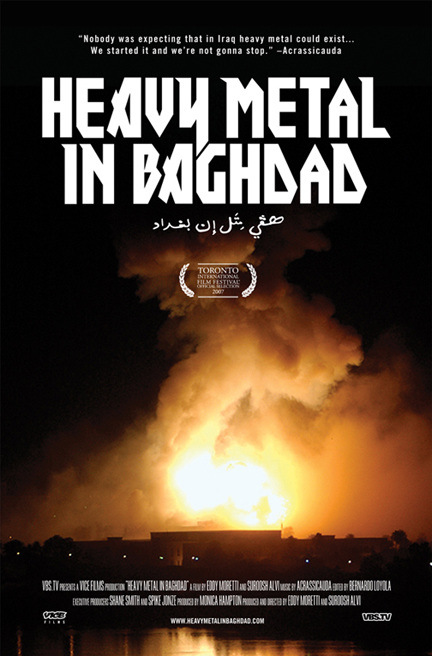
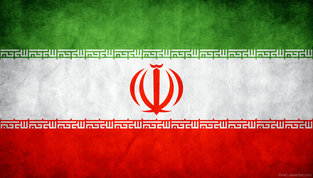
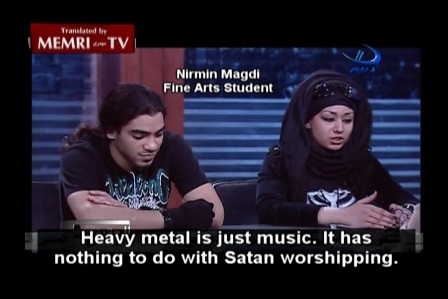
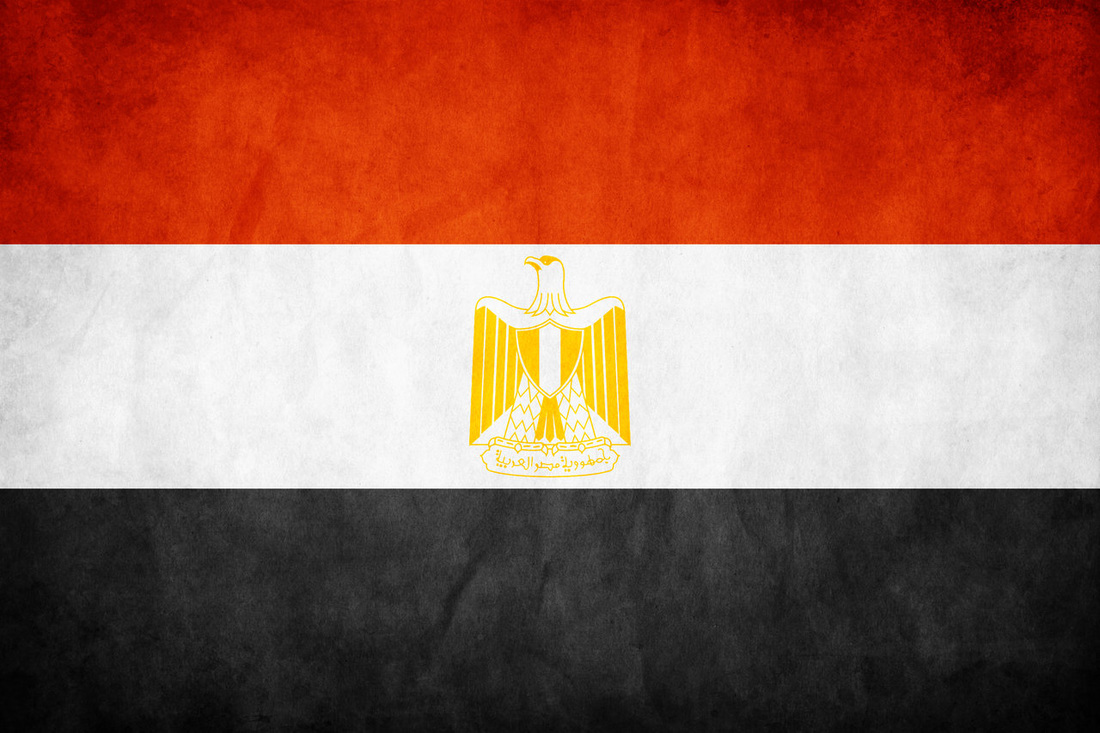

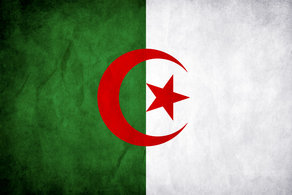




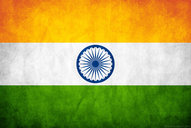


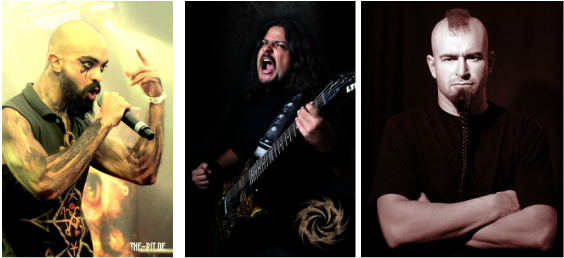
 RSS Feed
RSS Feed